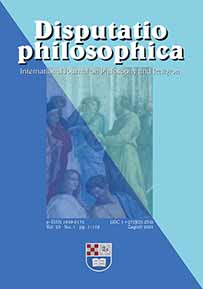Virtual Sociability — Between Virtual Communities and Networked Individualism
Virtual Sociability — Between Virtual Communities and Networked Individualism
Author(s): Krešimir Peračković, Hrvoje PetrinjakSubject(s): Culture and social structure , History and theory of sociology, Social development, Social Theory, Health and medicine and law, Sociology of Culture
Published by: Fakultet filozofije i religijskih znanosti, Sveučilište u Zagrebu
Keywords: COVID - 19 pandemic;community;networked individualism;real virtuality;virtual communities;virtual reality;virtual sociability;
Summary/Abstract: Since the 2020 COVID–19 pandemic, the term virtual has become one of the most used in media and everyday speech. There is an increasing amount of research done on this new reality, and the results are still to be published. However, it is insufficiently known in scientific periodicals that the concept of virtual reality, enabled by information technology, has existed in the sociological literature since the 1990s when Castells introduced it to the theory of network society. Therefore, the paper’s primary goal is to consider basic concepts such as virtual reality, real virtuality, virtual communities, virtual sociability, and networked individualism. We will also briefly look at the forgotten classical notion of community as a fundamental form of sociability defined by the sociologist F. Tönnies, which re–enters the focus of scientific interest, without a clear and sociologically known classical definition. Starting from this framework, the paper examines the key question of whether these new virtual communities are indeed communities in the classical sense of the term or whether it is a form of networked individualism.
Journal: Disputatio philosophica: International Journal on Philosophy and Religion
- Issue Year: 23/2021
- Issue No: 1
- Page Range: 43 - 63
- Page Count: 21
- Language: English

